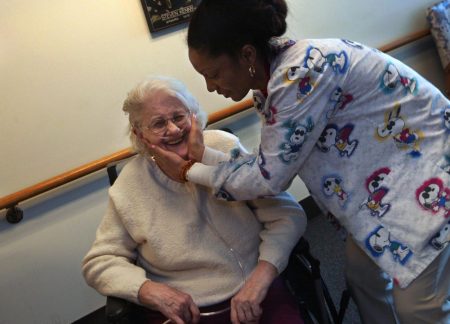Those online senior living referral services are getting a lot of attention these days. And not in a good way. The chair of the U.S. Senate Aging Committee has begun an investigation into assisted living referrals by A Place for Mom, one of the biggest commercial advice outfits. At the same time, more states are requiring firms to publicly disclose their financial arrangements with the facilities they recommend.
The business model for most of these companies is simple: They steer users to senior living or other service providers that pay them, generally without regard to quality. In some cases, they refer most often to those facilities that pay the most, either through a fee or commission, or by purchasing advertising.
Pay To Play
Most pay-to-play sites rarely bother to independently determine the quality of the facilities they endorse. A recent Washington Post investigation (paywall) found that more than a third of the facilities in 28 states that A Place for Mom highly recommended were cited by regulators for poor care.
Some referral sites include consumer ratings, but The Post reported many are fake.
The potential conflicts of interest got the attention of Senate Aging Committee Chair Bob Casey (D-Pa.). In a letter to A Place for Mom, perhaps the largest of many for-profit referral businesses, Casey wrote:
“A Place for Mom’s claims that it is unbiased are undermined by its own materials, as well as expert advice from former company employees, given that the listings families are shown by A Place for Mom are limited to facilities from which it receives a commission.”
I reached out to A Place for Mom with a request for comment on the allegations and will update this post if I hear back.
State Crackdowns
At the same time, states are moving to regulate these placement agencies.
California requires them to be licensed. Several states are making referral firms disclose their financial relationships with the providers to which they steer consumers. States such as Arizona, Colorado, and Washington, and most recently Maryland have required the firms to tell consumers how they are compensated. A similar bill is pending the California legislature.
The Maryland law, which takes effect in October, is limited to only assisted living referrals. It requires referring sites to provide clients with information about their financial relationships with providers. It also limits the sites from sharing or selling personal medical information and requires referring firms to carry insurance.
Limiting the regulations to assisted living referrals seems like a curious choice, since many firms use a similar business model with nursing homes, home care agencies, and other providers. But it is a start.
If for-profit referral firms prioritize the interests of providers over consumers, what are alternatives for families desperate to find quality care for their loved ones? Here are a few options:
Area Agencies on Aging (AAAs). They are part of a network of local information and referral services, usually affiliated with or funded by government. These networks often include Aging and Disability Resource Centers (ADRCs) and usually can be found through your local 2-1-1 call service or by calling the national Eldercare Locator at 800-677-1116.
The quality of AAAs is highly variable. Some, for example, will not refer to for-profit providers, which can eliminate many good sources of senior housing or services. And they often have little up-to-date information on providers.
Local community-based organizations. An excellent low- or no-cost solution may be a local community-based organization that provides information and referral services. These non-profits often know the best facilities in their communities. Reputable CBOs have no financial conflicts of interest and usually are funded through a mix of philanthropy and government grants.
But their services may be limited. Some may refer you to two or three local options at no cost but they usually don’t have the resources to guide you through each step of the process. Others may provide ongoing case management services for a fee. (Full disclosure; I serve as an unpaid board member of a senior services CBO).
Care managers. Sometimes called geriatric care managers or aging life care managers, these fee-based advisors often are trained social workers or nurses (or both). The best are familiar with local services providers and have no financial conflicts.
Expect to pay at least a few hundred dollars for an initial assessment and $100/hour and up for ongoing services. But they’ll be helping you make a decision that could cost tens of thousands of dollars and risk the health and wellbeing of your loved one. You can find care managers through the Eldercare Locator or through their trade association here.
The basic rule of thumb for any advisor is simple: They are most likely to represent the interests of whoever is paying them. You want that to be you.
If you take advice from a website that is compensated by businesses it refers to, it will be representing their interests, not yours. You may save a few dollars up front but it will end up costing much more in the long run. Buyer beware.
Read the full article here










